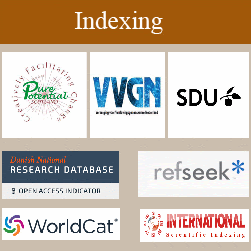Q Kidney Risk Calculator- Useful Tool in Hospitals and Community
Author(s):
Alinda Sze Fung Chiu
A kidney health check was conducted over a day in two private hospitals (Peninsula Private Hospital and Beleura Hospital) in 2017. 243 participants enrolled in this study. The study population were mobile inpatients, members from the public and health workers (nurses, doctors, allied health workers and administrative staff).
Method: A Q risk calculator was used to assess the risk of developing moderate and severe chronic kidney disease (eGFR < 60 mls/min) and end stage renal failure over the next 5 years. All participants consented prior to being involved in the study.
Results: The majority was aged 65 to 75 years old (aged population). 18% of the participants were diabetic, 18% had cardiovascular disease, 37% were hypertensive, 5% were smokers, 28% of the participants were overweight and obesity was seen in 25%. Diabetic females are five times higher risk than non-diabetic females in developing chronic kidney disease stage 3 and 4. Male diabetics are three times more at risk than non-diabetic men in developing moderate to severe chronic kidney disease. However diabetic men are five times higher risk than normoglycaemic men in progressing into end stage renal failure Females with cardiovascular disease are five times higher risk than women with no cardiovascular disease in developing moderate to severe chronic kidney disease. Men with cardiovascular disease are three times higher risk than men with no cardiovascular disease in developing moderate to severe chronic kidney disease. Hypertensive women are ten times higher risk than normotensive women in developing moderate to severe chronic kidney disease. Interestingly hypertensive men are four times higher risk than normotensive male in developing end stage renal failure Obese men are three times higher risk than normal weight men in developing moderate to severe chronic kidney disease. Underweight females are three times at risk than normal weight females in developing moderate and severe chronic kidney disease.
Summary: Qrisk questionaire is a quick and easy tool to assess risk of developing chronic kidney disease. Participants with diabetes, hypertension and cardiovascular disease have a higher risk of developing moderate and severe chronic kidney disease over the next 5 years. Overweight (body mass index 25 to 29.99), obese patients (body mass index more than 30) and interestingly underweight females with body mass index 18.5 or less have a higher risk of developing moderate and severe chronic kidney disease.



